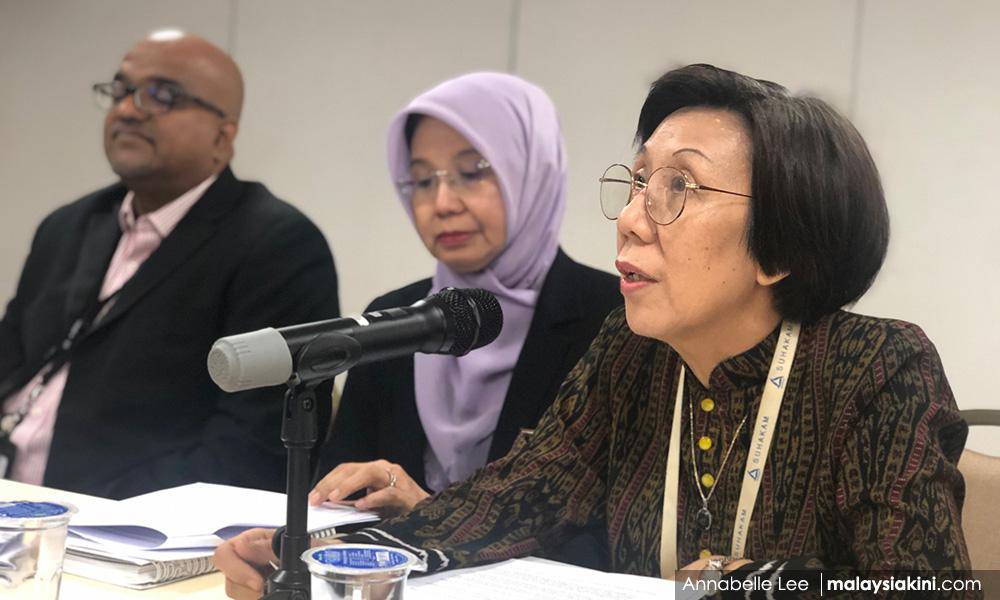
A Suhakam commissioner expressed surprise that the Pakatan Harapan government had decided not to change draconian laws despite previously setting up a task force to review them.
Commissioner Aishah Bidin, who was a member of that task force, said this during the launch of Suhakam’s 2018 Annual Report today.
“What is interesting is last year, there was a special task force committee to look into security laws including the Prevention of Terrorism Act (Pota), the Security Offences (Special Measure) Act 2012 (Sosma), the Prevention of Crime Act 1959 (Poca) and so forth.
“[...] (what's) surprising, of course, (was) the fact that we had many meetings but the outcome later we found out later was that they did not intend to change the laws.
“(They called for) just a moratorium on the Sedition Act 1948,” she remarked.
During her speech, Aishah also presented a list of activities and initiatives undertaken by the commission last year.
Shortly after Harapan won the 14th general election, Home Minister Muhyiddin Yassin had set up the task force to review a list of draconian laws and their provisions in accordance with the coalition’s election manifesto promise.
However, he later said that Sosma and Pota, in particular, would be retained with some amendments, courting widespread criticisms from NGOs that wanted them to be abolished.

This year, Muhyiddin said that the laws continued to be under review.
Child labour on plantations?
Meanwhile, during a question-and-answer session at today’s event, commissioner Lok Yim Pheng revealed the commission had recently learned about possible “child labour” at plantations in the country.
Through its consultations with government agencies, civil society organisations and plantation staff, she said Suhakam had heard that children tagged along with their parents to the plantations due to lack of childcare or education facilities where they lived.
“They follow their family and they go to the plantation or the estates. Where they stay, there is no childcare centre, no learning community centre.
“So where do the children go to? They follow the parents and in the end, they end up doing work. This is something we need to look into,” she said.
“At the same time, the company seems to be quite positive (about it) and just pays them a token,” she later added.
Lok said Suhakam had also learnt of children who had dropped out of school and were now working on the plantations.
“Some of it is (was) because of school dropouts. The location where they stay is around the plantation area where there are no job opportunities except to work on the plantations.
“So that’s how they are being employed while underaged, and they have to work there,” she said.
This discovery of apparent child labour was not included in the annual report though Suhakam is looking into the issue together with the ILO, Lok later said. - Mkini


No comments:
Post a Comment
Note: Only a member of this blog may post a comment.